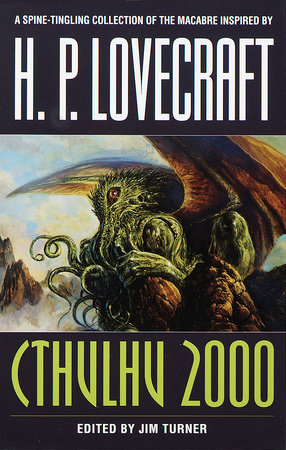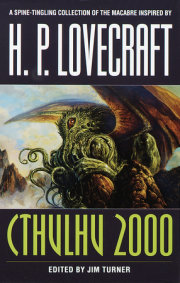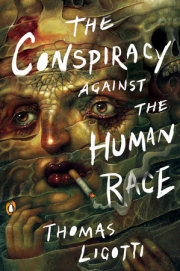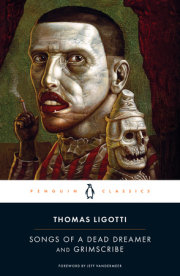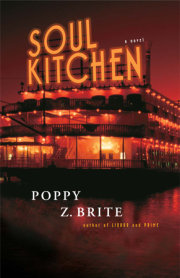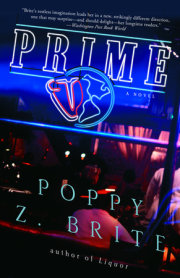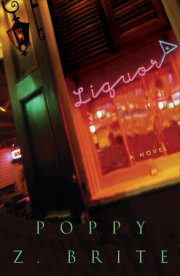Cthulhu 2000
1.
In a career as editor of Arkham House that has lasted now for twenty years, I have received a certain type of letter—over and over and over again—arriving from all parts of the world. The correspondent is usually, though not invariably, a young man, but the message is always the same: I have just encountered H.P. Lovecraft, and golly! what a writer. Here is a fairly recent example from a student in Greece, and please recall that what follows is the unemended transcript of someone using English as a foreign language:
In the early 80’s a Hellenic publishing house … released a book that consisted of stories of various authors. One of them was meant to become an everlasting influence and inspiration for my humble self. His initials were H.P.L. Since then fiction, imaginary landscapes, supernatural and cosmic horror entertain my lonely hours.…
Why is it, one wonders, that a reclusive writer of weird-fantasy stories, who during his lifetime couldn’t even earn a decent living, now possesses the power to inspire, and even to affect the lives of, readers around the globe?
Over the past half century, Lovecraft has emerged as a classic exponent of the weird-fantasy narrative, and as a general principle, there is only one acceptable type of such a story: a great one. Either a weird tale overwhelms the reader with what Lovecraft termed “the strange reality of the unreal” (in which case weaknesses are irrelevant), or it doesn’t (in which case strengths are irrelevant). To reiterate Lovecraft’s weaknesses at this point would be gratuitous, for his technical shortcomings are apparent to even the most insensitive reader; one may as well complain that the Venus de Milo has no arms. What then are Lovecraft’s positive qualities to account for his sorcerous hold upon readers the world over?
In his 1932 essay “Notes on Writing Weird Fiction,” Lovecraft establishes at the outset the creative criteria for his craft: “My reason for writing stories is to give myself the satisfaction of visualising more clearly and detailedly and stably the vague, elusive, fragmentary impressions of wonder, beauty, and adventurous expectancy which are conveyed to me by certain sights, ideas, occurrences, and images.…” But wait, you ask, what’s all this about wonder and beauty and adventurous expectancy; isn’t Lovecraft supposed to be a preeminent American horror writer? Well, yes, he is, and further along in his opening paragraph Lovecraft allows that his stories “frequently emphasise the element of horror because … it is hard to create a convincing picture of shattered natural law or cosmic alienage or ‘outsideness’ without laying stress on the emotion of fear.”
Never during the final decade of his life—a period coinciding more or less with the Cthulhu Mythos fiction—did Lovecraft expressly consider himself to be a horror writer. He rather, as a cosmic fantasist, endeavored “to weave gossamer ladders of escape from the galling tyranny of time, space, and natural law.” Lovecraft further explains that “In relation to the central wonder, the characters [in weird fiction] should shew the same overwhelming emotion [i.e. fear] which similar characters would shew toward such a wonder in real life”; the horror element, in other words, is an ineluctable concomitant to his aesthetic theories, not an end in itself. Only decades after Lovecraft’s death, when he was rediscovered by a shell-shocked postwar generation who had endured a cataclysmic global holocaust, followed by the omnipresent specters of Cold War paranoia and atomic annihilation—only then was Lovecraft adjudged a “horror writer” by a generation of readers who had forgotten the meaning of cosmic wonder. Thus the reclusive Providence dreamer was invoked as orchestrator of the major uncertainties of our century, his Cthulhu deities the mythopoeic presentiment of everything from societal collapse to nuclear devastation.
The reason the mature Lovecraft was never a writer of conventional horror fiction is that horror presupposes an actively malicious universe, both within and without the individual, whereas Lovecraft all his life was a scientific materialist for whom the concept of “evil” conveyed no absolute meaning. “Only another collection of molecules” was his characterization of an unfortunate encounter with a fellow human being, while in his relation to the cosmos-at-large, Lovecraft described himself as an “indifferentist”: “The interplay of forces which govern climate, behaviour, biological growth and decay, and so on, is too purely universal, cosmic, and eternal a phenomenon to have any relationship to the immediate wishing-phenomena of one minute organic species on our transient and insignificant planet.”
The Judeo-Christian theological tradition, on the other hand, posited a great cosmic drama of sin and redemption in which man, perched precariously between heaven and hell, was at the very center of Creation. But beginning in the fifteenth century, the Copernican revolution displaced the Earth as the center of the universe, and today our third-from-the-Sun planetary habitat is simply an inconsequential aqueous orb amid a whirl of other planets in a tiny outpost of the Milky Way galaxy, itself but one of billions of other galaxies in the visible universe; the divinely Edenic origin of our species likewise has given way to a creeping carbon-based creature struggling to emigrate from a primordial planetary pool. American physicist Steven Weinberg concluded his 1977 book The First Three Minutes with the chilling phrase “the more the universe seems comprehensible, the more it also seems pointless.” Four decades earlier, in a 1935 letter to one of his correspondents, Lovecraft had written presciently of “the blind, indifferent cosmos, and the fortuitous, deterministically motivated automata who form a sort of momentary insect part on the surface of one of the least important of its temporary grains of dust.”
If the scientifically minded Lovecraft had no belief in conventional notions of good versus evil, there remains to account for the extraordinary fascination he continues to exert over a worldwide readership. In a 1930 letter to James F. Morton, Lovecraft extols “the quality of mystic adventurous expectancy itself—the indefiniteness which permits me to foster the momentary illusion that almost any vista of wonder and beauty might open up, or almost any law of time or space or matter or energy be marvellously defeated or reversed or modified or transcended. That is the central keynote of my character and personality.…” Despite Lovecraft’s obdurate lifelong atheism, his fervently expressed feelings of “mystic adventurous expectancy” are similar to what some would term a religious—or at the very least, an unabashedly ecstatic—experience; they are mystical and transcendent feelings, albeit engendered from dispassionate contemplation of a marvelous natural order.
A few years after the Lovecraft letter cited above, Albert Einstein wrote of the cosmos that “The most beautiful experience we can have is the mysterious. It is the fundamental emotion which stands at the cradle of true art and true science. Whoever does not know it and can no longer wonder, no longer marvel, is as good as dead. … A knowledge of something we cannot penetrate [i.e., the infinite universe], our perceptions of the profoundest reason and the most radiant beauty … it is this knowledge and this emotion that constitute true religiosity.” And here, in comparison, is Lovecraft’s definition of the “true function of fantasy”: “… to give the imagination a ground for limitless expansion, and to satisfy aesthetically the sincere and burning curiosity and sense of awe which a sensitive minority of mankind feel toward the alluring and provocative abysses of unplumbed space.…”
The “rapturous ecstasy of the unknown,” shall we call it? Lovecraft’s implacable aesthetic revolt against the temporal and the corporeal cannot be easily articulated, but exists as an unmistakable philosophic underpinning to his entire adult fictional oeuvre, from the early Dunsanian stories to the mature Mythos masterworks. And this intensely obsessive tension between a finite mind grappling with infinite reality will serve to ensure Lovecraft’s reputation among future generations. In his 1994 essay “The Creatures Of Hyperspace,” astronomer Alan Dressler argues that within a few hundred years, science is likely to reach its limit regarding a fundamental model of the universe. At that point, all continuing cosmological conundrums—what happened before the Big Bang? what lies beyond the visible universe? and so forth—will remain inaccessible to the human race, probably forever. And then the incomparable Lovecraft will be recalled: “We live on a placid island of ignorance in the midst of black seas of infinity, and it was not meant that we should voyage far.”
Yes, H.P.L., that’s what you told us all along, wasn’t it?
Copyright © 2010 by Jim Turner, editor. All rights reserved. No part of this excerpt may be reproduced or reprinted without permission in writing from the publisher.

